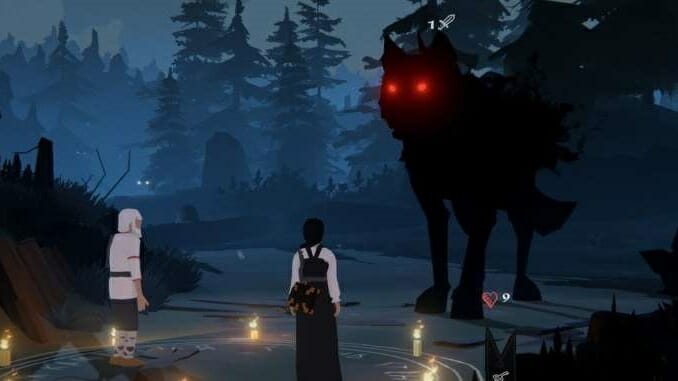Black Book Is a Dark Deckbuilder Built on Slavic Myth

At first, Black Book feels familiar. Its card-based battle system borrows from the explosion of deckbuilding roguelikes, most obviously Slay the Spire. The way the game structures itself around gaining new cards and expanding potential strategies will be familiar to anyone who has played games like this before. However, rather than using a slight narrative framing to hold up a number crunching strategy game, Black Book’s combat feels like the metaphor of a JRPG. It is a system that deepens its themes of people living in a dying ancient myth.
The game follows Vasilisa, a “knower” raised by her grandfather in the knowledge of the mystical. Content to learn, she still chose the ordinary life of a rural Russian woman, and found a good husband to marry. Before the game starts, though, he has died, apparently by suicide, though the game is intentionally vague about the exact circumstances. Because of orthodox Christian taboos, he is buried outside of a churchyard, damned. Vasilisa cannot accept this. She vows to snatch him from hell’s jaws. To this end, her grandfather helps awaken her magical powers and gives her the Black Book, a massive tome with seven seals. Once every seal is broken, it will grant Vasilisa one wish.
In the meantime, she must work. Peasants come to her for advice if crops die or if shadows and spirits haunt them. She travels across the countryside, looking for the demons who can break the book’s seals. Vasilica’s role and routine as a knower, rather than an escalating set of combat encounters, structures the game. Every section opens with Vasilisa back at home, where she can play cards with her grandfather and hear the complaints of peasants. She then travels to find her quest, stopping by markets and mystic places on the way. On the map is where Vasilica can fight demons and gain new cards. However, such battles are often avoidable. If you bring the right companion with you or know the right thing to say, demons can bow before your will, without the spells of the Black Book rending their devilish flesh. Thus, Black Book binds disparate genre elements together to make something that is more role playing game than deckbuilder.
Supplementary to that role play is how the game demands concrete knowledge of Slavic myth. Peasants will question you on what kind of demon or spirit is responsible for their problems and you can answer incorrectly. This encourages you to pay attention to the particularities of this world. The menu frequently updates with lore that is not just background information, but rather something you will refer back to as Vasilisa attempts to remember what to do with a demonic presence. Even the cards themselves, though they have roles and abilities similar to other card games, have illustrations that tie them to the minutiae of folklore. The game’s theming feels vital and immediate, rather than just set dressing.
This might just be because Slavic folklore is mostly unfamiliar to me, but the world’s details struck me as fleshed out and playful. Everyone in Black Book is fighting with the loss of the world. Demons, actually known as chorts, are the souls of old sinners or even the remnants of folk religions long since conquered by Christianity. The more sinister spirits demand sacrifice and appeasement or haunt the margins of villages, waiting to steal or murder souls away. The supernatural forces of Black Book reflect the precarity of the natural world. In this corner of Russia, a sudden flood or a well drying up can mean the difference between life or death. For the serfs and the poor, there is no safety net to support them. The world will kill them if it can.